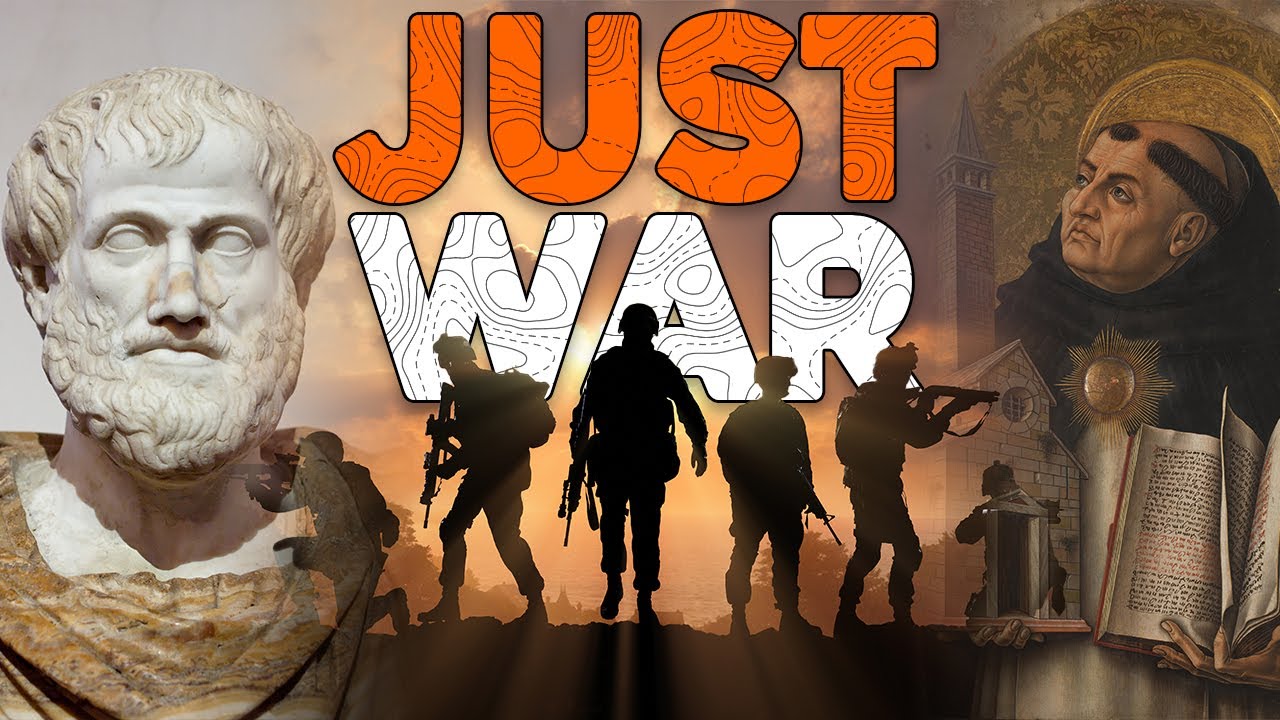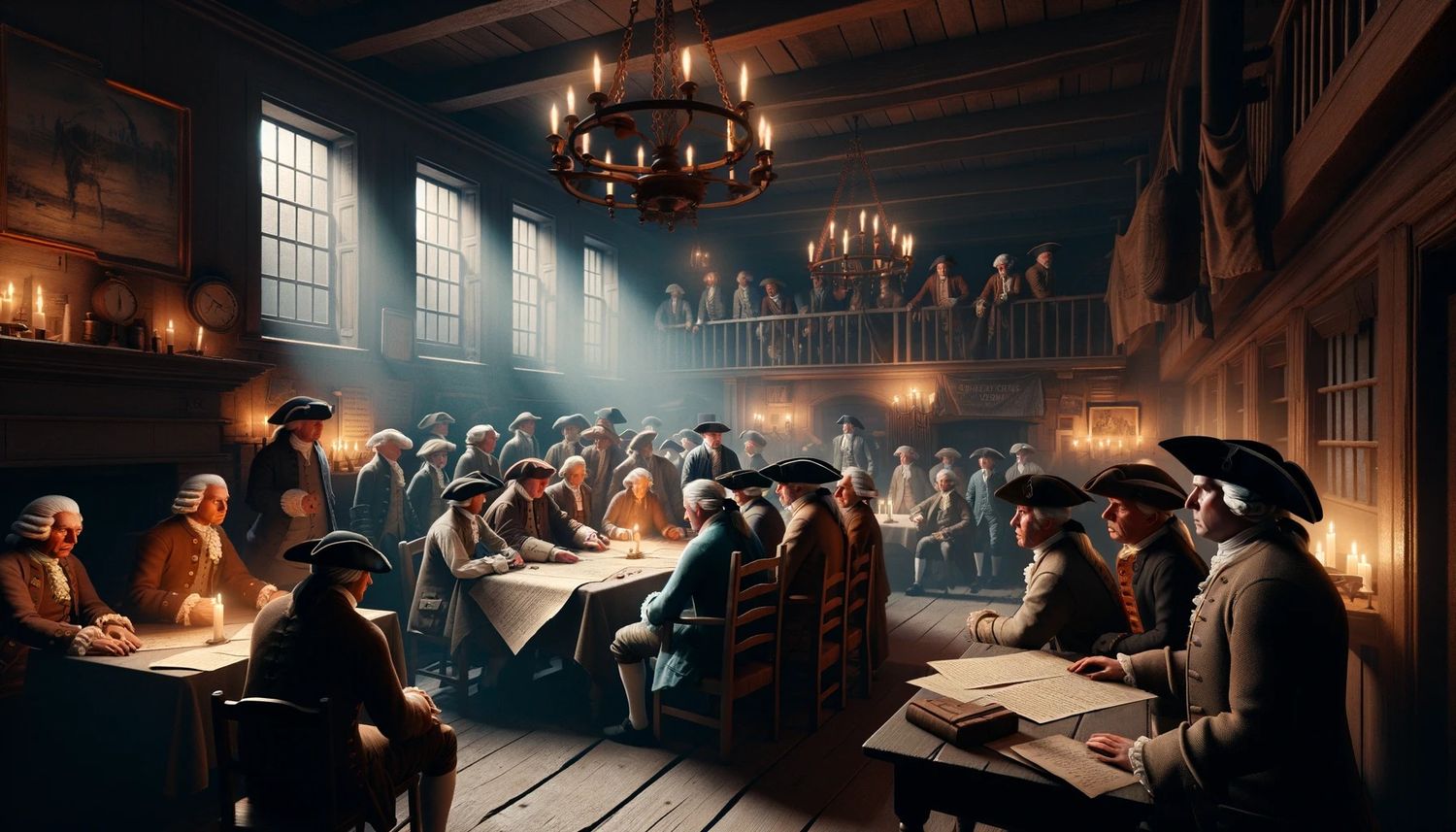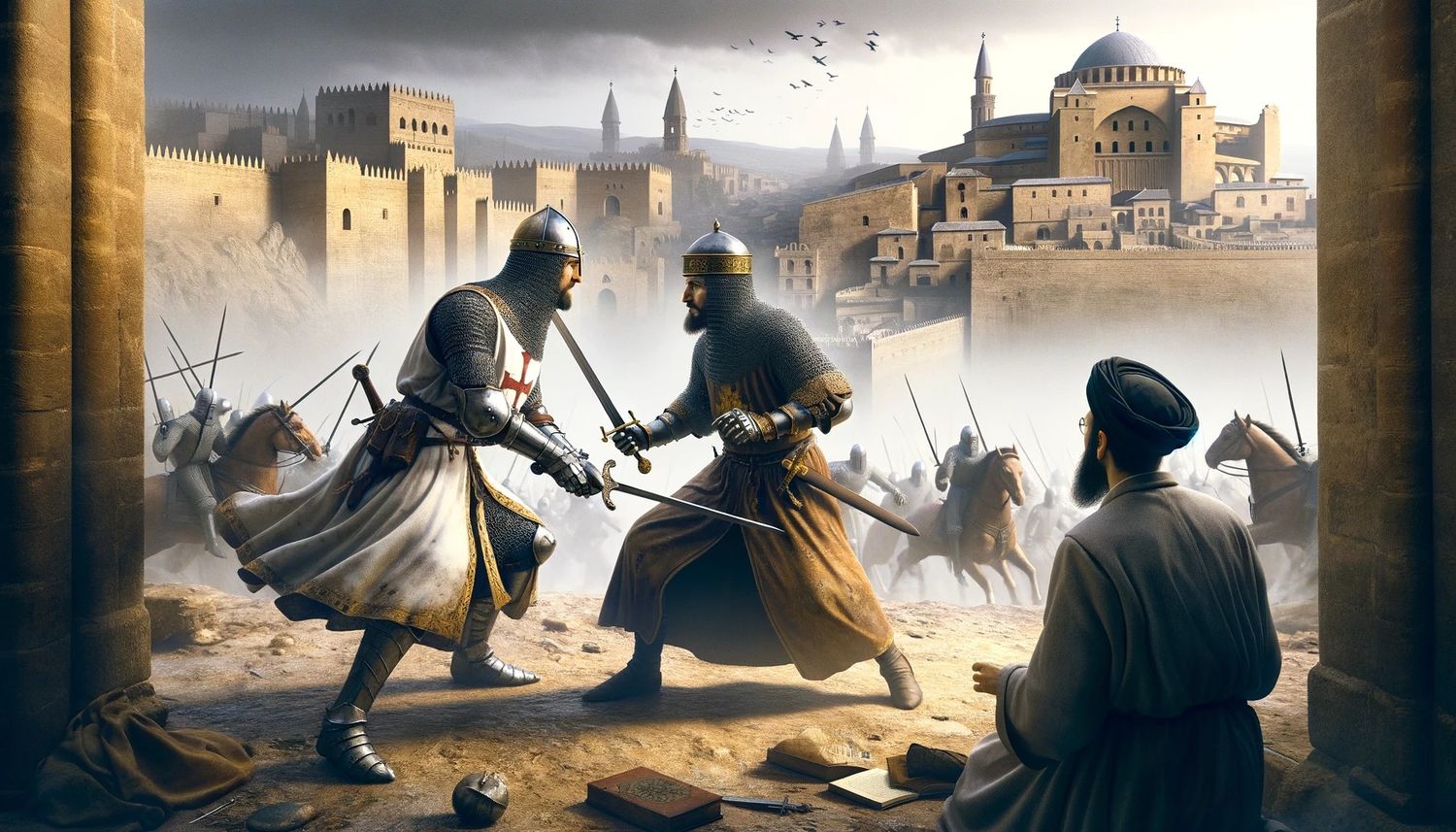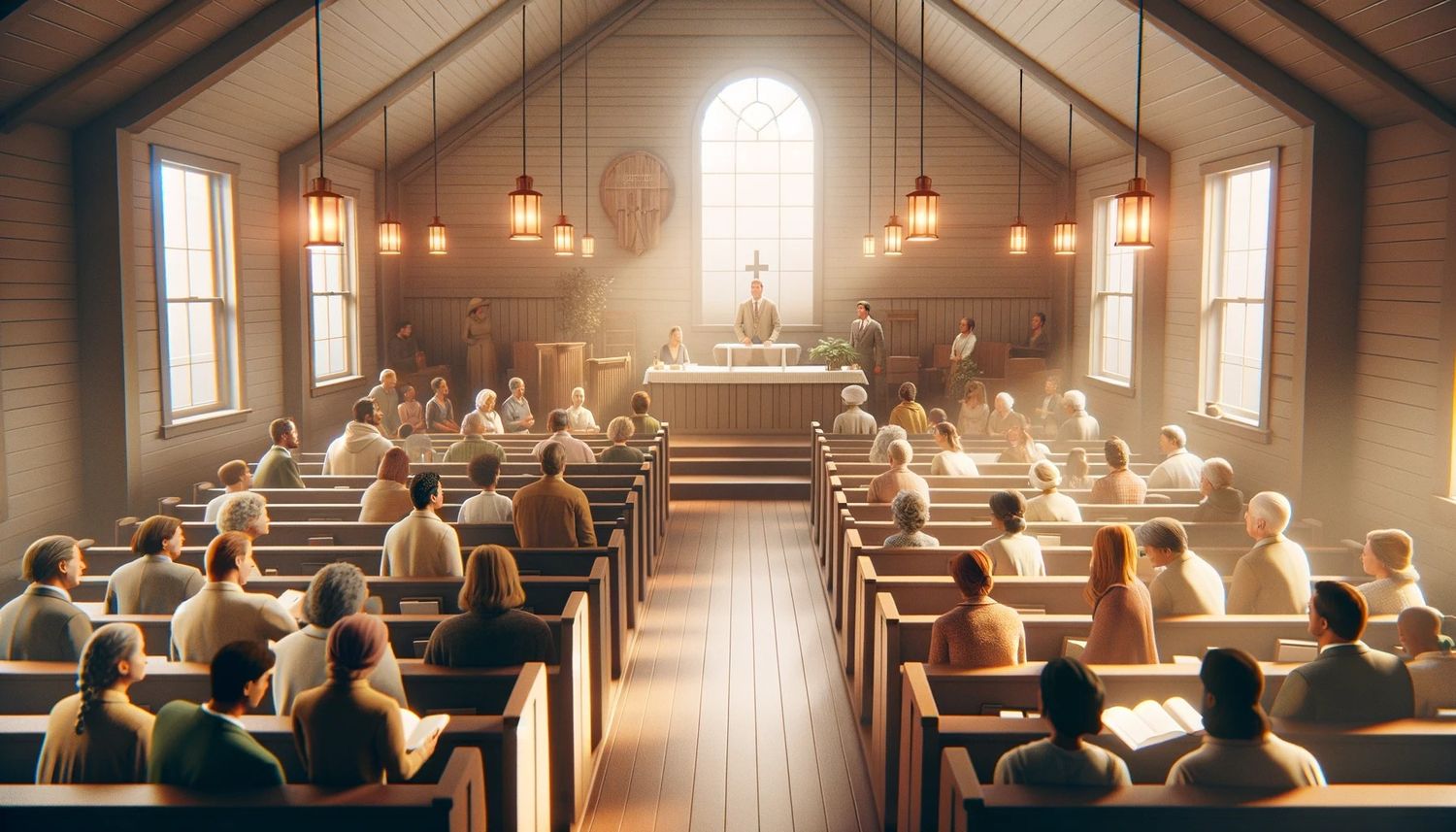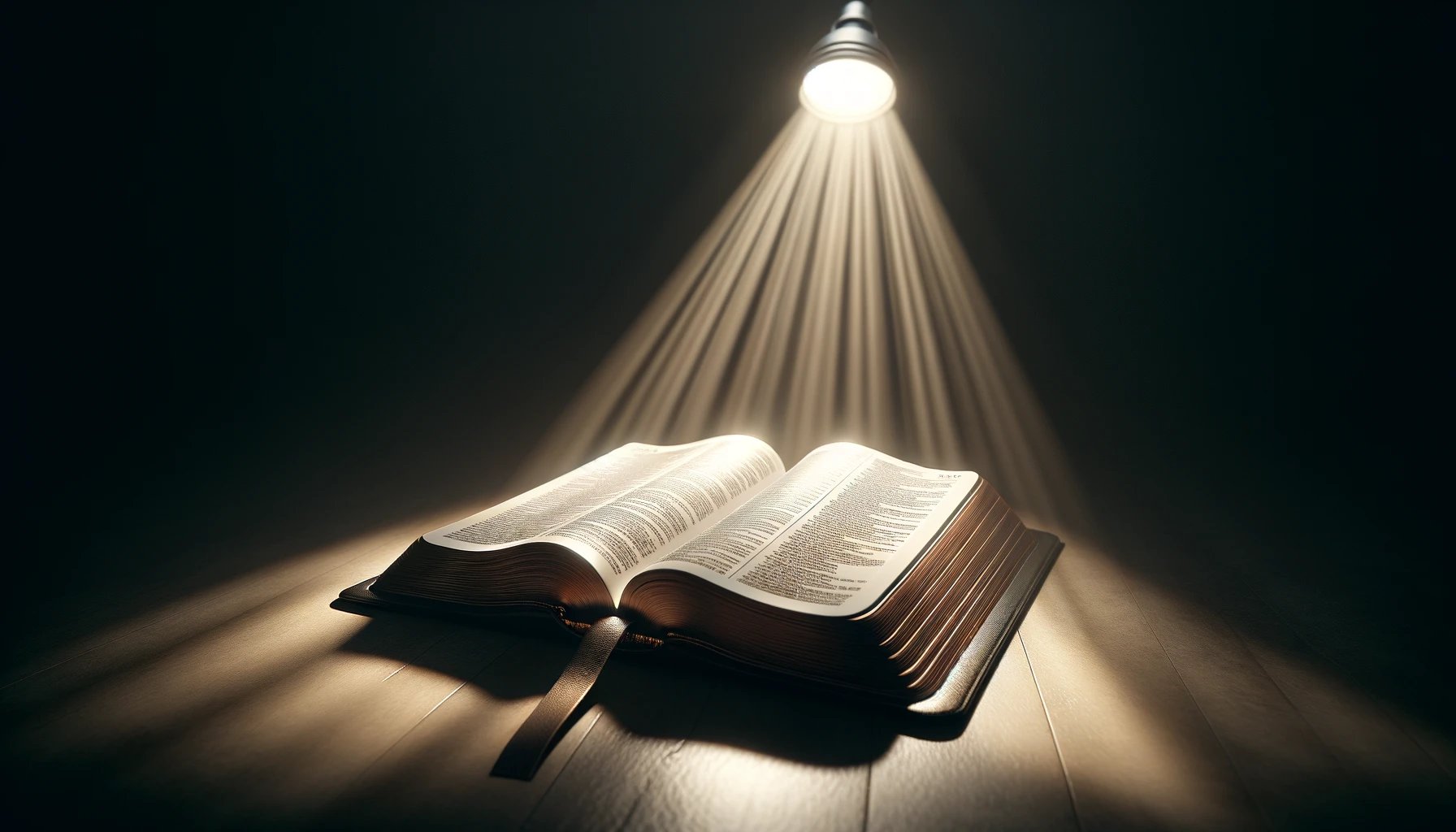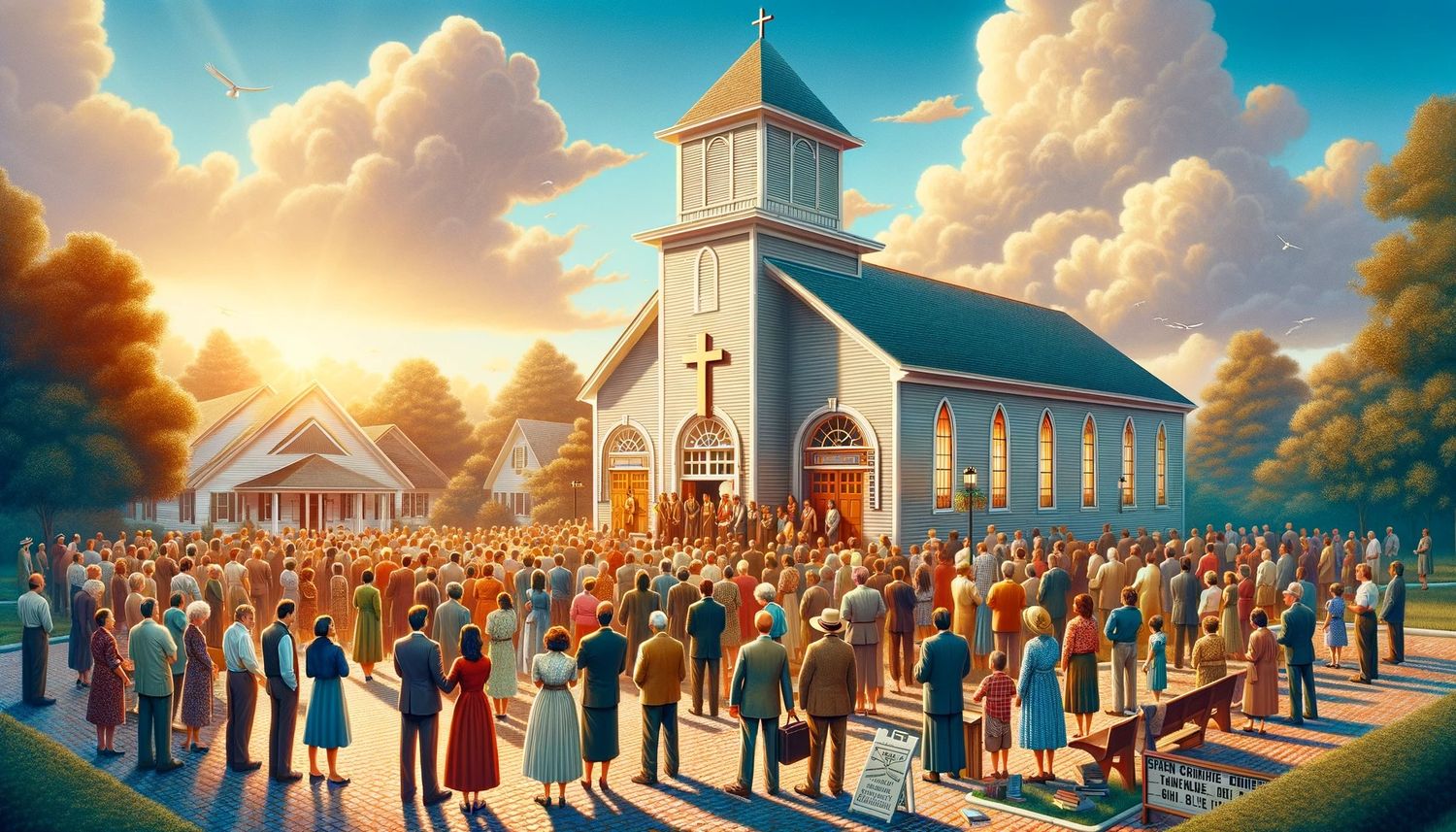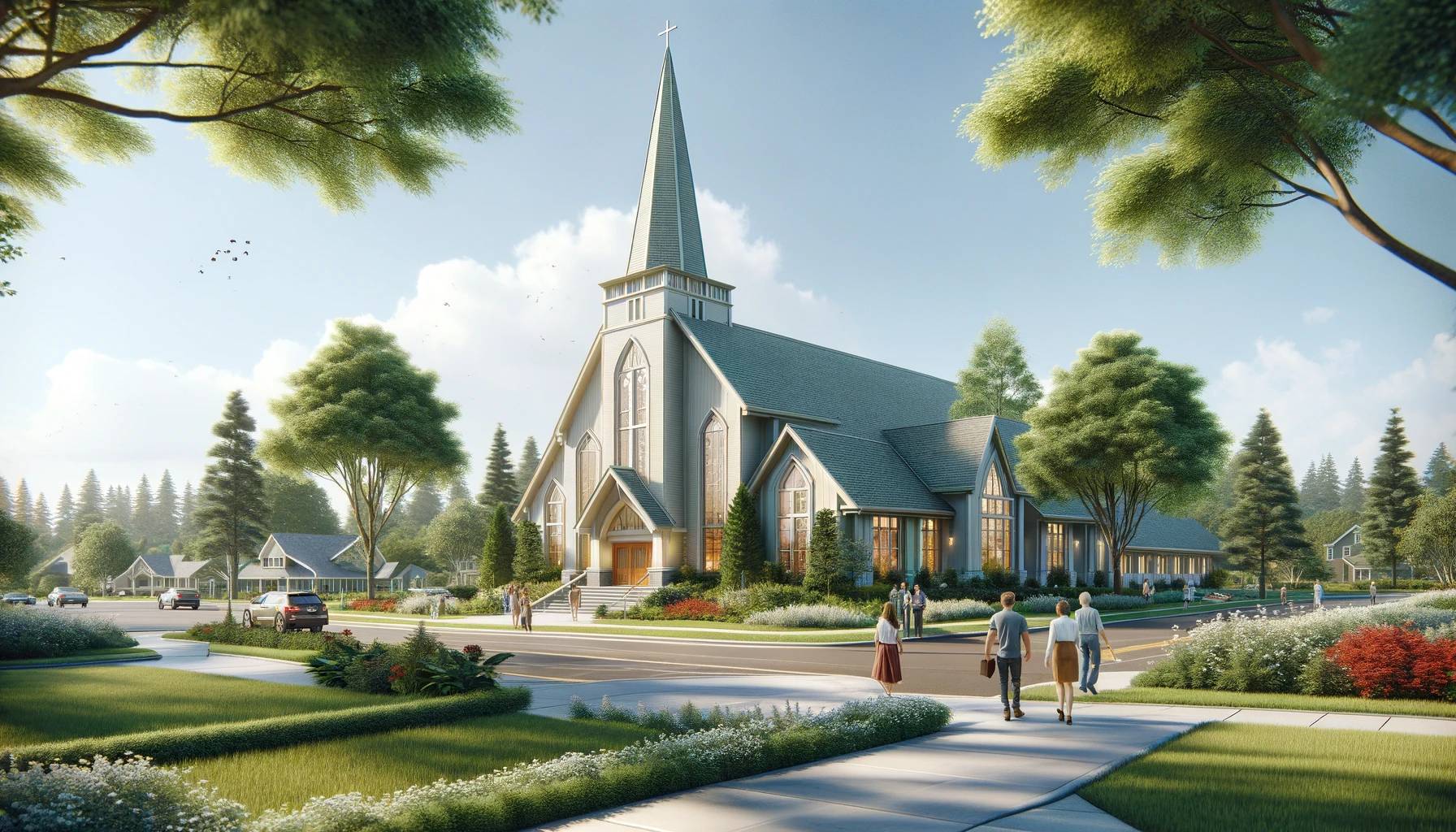Home>Theology and Spirituality>What Was The Baptist War
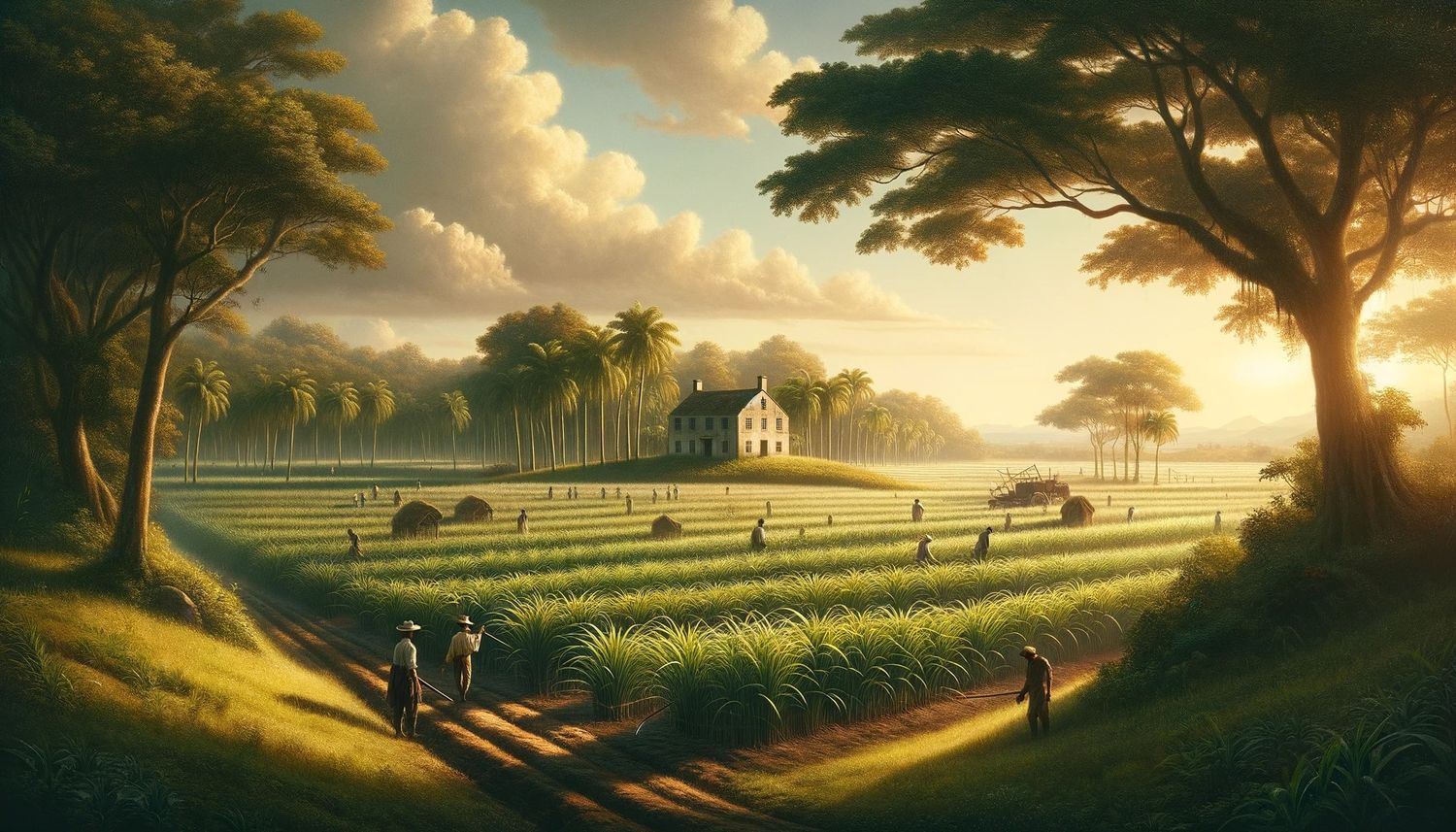

Theology and Spirituality
What Was The Baptist War
Published: February 21, 2024
Jason DeRose, Managing Editor at Christian.net, uses his expertise in religion and journalism to deepen understanding of faith's societal impacts. His editorial leadership, coupled with a strong academic background, enriches the platform’s diverse content, earning him recognition in both journalism and religious circles.
Discover the history and significance of the Baptist War in theology and spirituality. Learn about its impact and relevance today.
(Many of the links in this article redirect to a specific reviewed product. Your purchase of these products through affiliate links helps to generate commission for Christian.net, at no extra cost. Learn more)
Table of Contents
Introduction
The Baptist War, also known as the Christmas Rebellion, was a pivotal event in the history of Jamaica and the fight for freedom from slavery. This historic uprising, which took place in 1831, was a significant turning point in the struggle for emancipation and social justice. The Baptist War was not only a courageous act of resistance by the enslaved people of Jamaica but also a catalyst for change that reverberated far beyond the shores of the Caribbean.
The events leading up to the Baptist War were deeply rooted in the oppressive system of chattel slavery that had plagued the island for centuries. The enslaved population, predominantly of African descent, endured unimaginable suffering and deprivation under the brutal yoke of slavery. Their labor fueled the lucrative sugar industry, yet their humanity was systematically denied, and their basic rights were trampled upon.
Amidst this backdrop of oppression, a spirit of resilience and defiance began to simmer within the hearts of the enslaved. The Baptist War was not merely a spontaneous eruption of discontent; rather, it was the culmination of years of pent-up frustration and a fervent desire for freedom and dignity. The enslaved individuals, inspired by the teachings of Christianity and the promise of spiritual liberation, found the courage to rise up against their oppressors and demand an end to the dehumanizing institution of slavery.
The Baptist War was a testament to the indomitable human spirit and the unwavering pursuit of justice. It embodied the universal yearning for freedom and equality, transcending geographical boundaries and resonating with all who empathized with the plight of the oppressed. The echoes of the Baptist War reverberated across the Atlantic, igniting a flame of solidarity among abolitionists and advocates for human rights.
As we delve into the origins, key figures, and enduring impact of the Baptist War, it is essential to recognize the profound significance of this pivotal moment in history. The Baptist War serves as a poignant reminder of the resilience of the human spirit and the enduring quest for liberation from oppression. It stands as a testament to the power of collective action and the enduring legacy of those who dared to challenge the status quo in pursuit of a more just and equitable world.
Read more: Why Did The Baptist War Happen
The Origins of the Baptist War
The origins of the Baptist War can be traced back to the entrenched system of slavery that permeated every facet of life in Jamaica during the 19th century. The institution of slavery, characterized by its dehumanizing brutality and systematic oppression, cast a long and harrowing shadow over the lives of the enslaved population. The enslaved individuals, predominantly of African descent, endured unspeakable hardships as they toiled under the relentless demands of their masters, laboring in the sugar plantations that formed the economic backbone of the island.
Amidst the pervasive climate of subjugation, a potent undercurrent of resistance began to emerge within the enslaved community. This spirit of defiance was deeply intertwined with the religious fervor that permeated their daily lives. The Baptist faith, with its message of spiritual equality and the promise of deliverance, played a pivotal role in shaping the aspirations of the enslaved individuals. The Baptist missionaries, who had established a presence in Jamaica, provided a platform for the dissemination of Christian teachings that resonated with the yearning for freedom and dignity.
The teachings of Christianity, particularly the belief in the inherent worth of every individual in the eyes of God, kindled a sense of empowerment and solidarity among the enslaved population. The concept of spiritual equality stood in stark contrast to the stark realities of their physical bondage, igniting a fervent desire for liberation from the chains of slavery. As the Baptist faith took root among the enslaved, it became a catalyst for a burgeoning sense of agency and a collective yearning for emancipation.
The oppressive conditions endured by the enslaved individuals, coupled with the transformative influence of the Baptist faith, set the stage for the eventual eruption of the Baptist War. The simmering discontent and the fervent desire for freedom coalesced into a potent force that would ultimately culminate in a courageous and resolute stand against the entrenched forces of oppression.
The origins of the Baptist War are deeply intertwined with the complex interplay of historical, social, and religious factors that converged to fuel the flames of resistance. The legacy of the Baptist War serves as a testament to the enduring spirit of resilience and the unyielding pursuit of justice in the face of seemingly insurmountable odds.
The Role of Samuel Sharpe
At the heart of the Baptist War stood a towering figure whose unwavering commitment to justice and freedom galvanized the spirit of resistance among the enslaved population. Samuel Sharpe, a deeply revered and influential figure, emerged as a pivotal leader whose indomitable courage and visionary leadership played a pivotal role in shaping the trajectory of the historic uprising.
Born into slavery in Jamaica, Samuel Sharpe possessed a rare blend of intellect, charisma, and moral conviction that set him apart as a beacon of hope and inspiration for his fellow enslaved brethren. Sharpe, who was also a deacon in the Baptist church, leveraged his position to impart a message of empowerment and liberation, using the teachings of Christianity as a catalyst for mobilizing the enslaved community.
Sharpe's pivotal role in the events leading up to the Baptist War cannot be overstated. His impassioned advocacy for the rights and dignity of the enslaved individuals, coupled with his unwavering commitment to justice, propelled him into a central leadership role within the burgeoning resistance movement. Sharpe's stirring oratory and visionary foresight galvanized the enslaved population, instilling within them a sense of purpose and unity as they rallied behind his impassioned call for emancipation.
As the simmering discontent among the enslaved population reached a boiling point, Sharpe emerged as a unifying force, articulating their collective grievances and articulating a bold vision for a future free from the shackles of slavery. His leadership during the pivotal strike of 1831, which precipitated the Baptist War, underscored his pivotal role as a catalyst for change and a symbol of unwavering resolve in the face of adversity.
Sharpe's enduring legacy as a visionary leader and a champion of freedom continues to resonate profoundly, serving as a testament to the transformative power of moral courage and steadfast determination. His pivotal role in the Baptist War stands as a testament to the enduring legacy of those who dare to challenge injustice and oppression, igniting a flame of hope and resilience that transcends the boundaries of time and place.
The indelible imprint of Samuel Sharpe's leadership and unwavering commitment to justice serves as a timeless reminder of the transformative impact of individuals who dare to defy the status quo and champion the cause of freedom. His legacy endures as a beacon of inspiration, illuminating the path toward a more just and equitable world for generations to come.
The Outcomes and Impact of the Baptist War
The aftermath of the Baptist War reverberated across Jamaica and beyond, leaving an indelible imprint on the course of history. The immediate repercussions of the uprising were met with a swift and brutal crackdown by the colonial authorities, resulting in widespread repression and violence against the enslaved population. The suppression of the rebellion led to a profound loss of life and a wave of punitive measures aimed at quelling any further dissent. However, amidst the harrowing aftermath, the Baptist War sparked a seismic shift in the trajectory of the abolitionist movement and the struggle for emancipation.
The Baptist War served as a clarion call that reverberated throughout the Caribbean and beyond, galvanizing the resolve of abolitionists and advocates for social justice. The resolute stand taken by the enslaved individuals in Jamaica sent shockwaves across the Atlantic, igniting a groundswell of solidarity and support for the cause of emancipation. The poignant testimonies of the atrocities committed in the wake of the rebellion served to amplify the voices of those who had long championed the abolition of slavery, propelling the issue to the forefront of international consciousness.
The impact of the Baptist War extended far beyond the confines of Jamaica, serving as a catalyst for legislative and societal change on a global scale. The widespread outrage and condemnation of the brutal reprisals following the rebellion fueled the momentum of the abolitionist movement, hastening the demise of the abhorrent institution of slavery. The Baptist War, with its unyielding spirit of resistance, played a pivotal role in accelerating the momentum toward emancipation, ultimately contributing to the passage of legislation that brought an end to the transatlantic slave trade and the formal abolition of slavery in the British Empire.
The enduring impact of the Baptist War resonates as a testament to the transformative power of collective action and the unwavering pursuit of justice. The uprising served as a poignant reminder of the resilience and fortitude of those who dared to challenge the entrenched forces of oppression, leaving an indelible legacy that continues to inspire generations. The Baptist War stands as a testament to the enduring spirit of resilience and the unyielding quest for liberation from the shackles of injustice, serving as a beacon of hope and empowerment for all who strive for a more just and equitable world.
The legacy of the Baptist War endures as a testament to the enduring spirit of resilience and the unyielding pursuit of justice, serving as a poignant reminder of the transformative impact of collective action in the face of adversity. The reverberations of the Baptist War continue to echo through the annals of history, illuminating the path toward a more just and equitable world for generations to come.
Legacy of the Baptist War
The legacy of the Baptist War endures as a testament to the enduring spirit of resilience and the unyielding pursuit of justice. The reverberations of this historic uprising continue to echo through the annals of history, leaving an indelible imprint on the collective consciousness of Jamaica and the broader struggle for freedom and equality.
The Baptist War stands as a poignant reminder of the transformative power of collective action in the face of adversity. The uprising, fueled by the unwavering determination of the enslaved individuals to challenge the oppressive forces of slavery, serves as a beacon of hope and empowerment for all who strive for a more just and equitable world. The legacy of the Baptist War transcends the confines of time and place, resonating with the universal yearning for freedom and dignity.
The pivotal role of Samuel Sharpe, whose visionary leadership and unwavering commitment to justice galvanized the spirit of resistance, continues to inspire generations. Sharpe's enduring legacy as a champion of freedom serves as a timeless testament to the transformative impact of individuals who dare to defy the status quo and champion the cause of justice.
The Baptist War also serves as a testament to the enduring power of faith and spirituality in the face of oppression. The fusion of the Baptist faith with the fervent desire for liberation ignited a flame of resilience and unity among the enslaved population, underscoring the profound influence of spirituality in shaping the aspirations of the oppressed.
Furthermore, the Baptist War catalyzed a seismic shift in the trajectory of the abolitionist movement, hastening the demise of the abhorrent institution of slavery. The uprising served as a clarion call that reverberated throughout the Caribbean and beyond, galvanizing the resolve of abolitionists and advocates for social justice. The poignant testimonies of the atrocities committed in the wake of the rebellion amplified the voices of those who had long championed the abolition of slavery, propelling the issue to the forefront of international consciousness.
The enduring impact of the Baptist War serves as a testament to the transformative power of collective action and the unwavering pursuit of justice. The uprising stands as a poignant reminder of the resilience and fortitude of those who dared to challenge the entrenched forces of oppression, leaving an indelible legacy that continues to inspire generations. The Baptist War illuminates the path toward a more just and equitable world, embodying the timeless pursuit of freedom and equality for all.
